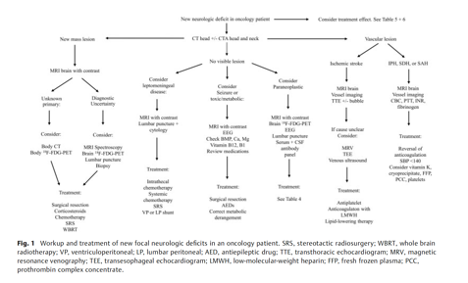1/
🚨Code stroke to the Med-Surg floor!
53 yo M with hep C & IVDU admitted yesterday for fever & chills.
BCx=GPCs in clusters😨. An ECHO is planned.
He develops witnessed-onset R sided weakness & aphasia. Head CT👇
Do you push tPA?
A #continuumcase
🚨Code stroke to the Med-Surg floor!
53 yo M with hep C & IVDU admitted yesterday for fever & chills.
BCx=GPCs in clusters😨. An ECHO is planned.
He develops witnessed-onset R sided weakness & aphasia. Head CT👇
Do you push tPA?
A #continuumcase

2/
LSW <2 hours ago. Head CT with no ICH.
Do you push tPA?
LSW <2 hours ago. Head CT with no ICH.
Do you push tPA?
3/
Lets give a little more context. CPR is 43. CT A/P done the day prior demonstrates renal infarcts.
On your exam you find Janeway lesions.
What about now? tPA?
Lets give a little more context. CPR is 43. CT A/P done the day prior demonstrates renal infarcts.
On your exam you find Janeway lesions.
What about now? tPA?
4/
Embolism from infective endocarditis occurs in <2% of all stroke patients. However, the absolute increase in stroke risk is 9% in the month after diagnosis.
These patients, especially in unconfirmed, but highly suspicious cases are a management challenge!
Embolism from infective endocarditis occurs in <2% of all stroke patients. However, the absolute increase in stroke risk is 9% in the month after diagnosis.
These patients, especially in unconfirmed, but highly suspicious cases are a management challenge!
5/
Using the Nationwide Inpatient Sample from 2002-2010, the rates of post-thrombolytic ICH was significantly higher in IE patient, affecting 1/5 patients + there was a low rate of favorate outcomes in the IE (only 1/10).
pubmed.ncbi.nlm.nih.gov/23943218/
Using the Nationwide Inpatient Sample from 2002-2010, the rates of post-thrombolytic ICH was significantly higher in IE patient, affecting 1/5 patients + there was a low rate of favorate outcomes in the IE (only 1/10).
pubmed.ncbi.nlm.nih.gov/23943218/
6/
As such, IE is a relative contraindication for tPA in stroke pts
however, mechanical thrombectomy is often successful!
In a matched case-control analysis, hemorrhage rates were similar.
However, despite + recanalization, mortality in IE pts 🔼(60%)
pubmed.ncbi.nlm.nih.gov/33327038/
As such, IE is a relative contraindication for tPA in stroke pts
however, mechanical thrombectomy is often successful!
In a matched case-control analysis, hemorrhage rates were similar.
However, despite + recanalization, mortality in IE pts 🔼(60%)
pubmed.ncbi.nlm.nih.gov/33327038/
8/
Understanding the stroke mechanism is of critical importance.
For more about the diagnosis and workup of patients with suspected ischemic stroke visit this FREE and OPEN ACCESS @ContinuumAAN article:
journals.lww.com/continuum/Full… by Dr. James Meschia
Understanding the stroke mechanism is of critical importance.
For more about the diagnosis and workup of patients with suspected ischemic stroke visit this FREE and OPEN ACCESS @ContinuumAAN article:
journals.lww.com/continuum/Full… by Dr. James Meschia
• • •
Missing some Tweet in this thread? You can try to
force a refresh

 Read on Twitter
Read on Twitter












